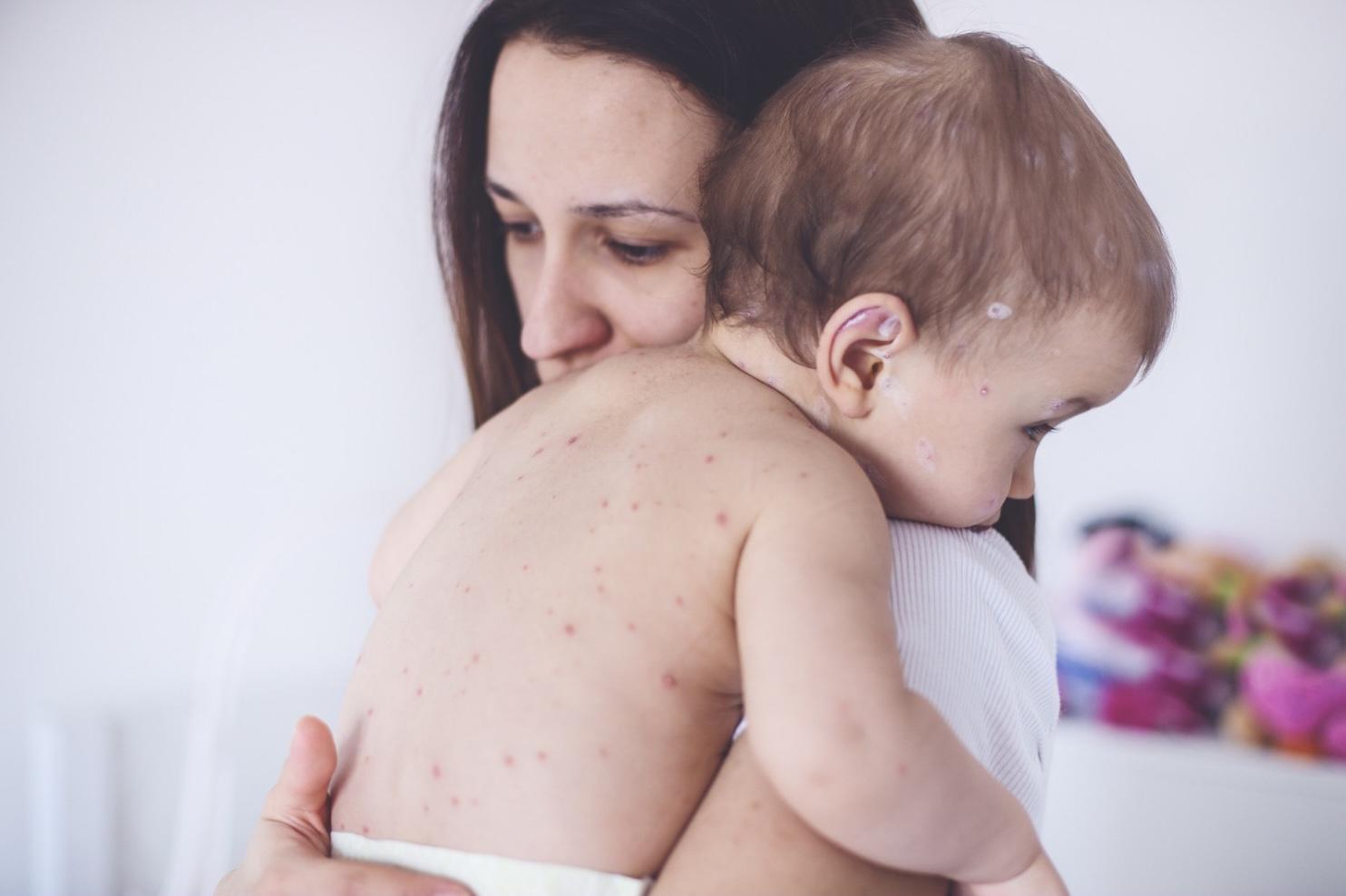372-374 Cyncoed Rd, Cardiff CF23 6SA

At Cyncoed Pharmacy, we offer a private chickenpox vaccination service for those aged between 1 to 64 years old! If suitable, you will receive two vaccinations at a minimum of six weeks apart. If you, or your child, had the first dose of chickenpox vaccination at a different provider, you can still have your second dose at Cyncoed Pharmacy, providing you meet all the eligibility criteria for the service.
Chickenpox is a highly contagious ailment triggered by the varicella zoster virus. Its’ hallmark symptom is an itchy rash, progressing from spots to blisters and scabs. Additional symptoms (such as fever, muscle aches and general malaise) may manifest a day or two before the rash emerges.
Whilst chickenpox is widespread, affecting most children in their early years, it can be contracted at any age. Transmission occurs through direct contact or airborne droplets.
In children most cases are mild and self-resolving without medical intervention. However, the illness may cause significant school absences, requiring parents to take time off work for care.
There are potential complications that can arise; from bacterial skin infections to rare instances of severe conditions such as encephalitis, pneumonitis and stroke, potentially necessitating hospitalisation and exceptionally, resulting in death.
Chickenpox poses heightened risks for very young infants (under 4 weeks old); adults, particularly during pregnancy, where complications may affect both mother and foetus, and in immunosuppressed adults.
Data from the UK Health Security Agency indicates that approximately half of children have had chickenpox by the time they are 4 years old, rising to 90% by the time they are 10 years old (UKHSA, unpublished).
Shingles (herpes zoster) arises from the reactivation of the varicella zoster virus in individuals previously infected. The virus, dormant after an initial chickenpox (varicella) infection, can be reactivated and cause shingles. Although those with shingles can transmit the virus (causing chickenpox in susceptible individuals), coming into contact with someone with chickenpox does not lead to acquiring shingles.
Shingles is identified by a blistered rash accompanied by pain. In some cases, this pain lingers for over three months – termed post-herpetic neuralgia. The severity of shingles tends to increase with age, and post-herpetic neuralgia is uncommon in otherwise healthy individuals under the age of 55.
The Joint Committee on Vaccination and Immunisation (JCVI) proposes incorporating a universal varicella vaccination plan into the standard childhood schedule. The suggested regimen involves a two-dose approach administered at 12 and 18 months, utilizing the MMRV vaccine for measles, mumps, rubella, and varicella.
JCVI statement on a childhood varicella (chickenpox) vaccination programme – GOV.UK
Drawing from the experiences of nations integrating varicella into routine vaccinations, a two-dose schedule is anticipated to swiftly and significantly reduce childhood chickenpox cases. This programme aims to avert severe chickenpox cases and other rare yet potentially hospitalisation-inducing complications.
Additionally, a catch-up initiative is recommended post-implementation to prevent immunity gaps.
The chickenpox vaccination is incorporated into the routine vaccine schedules of various countries, adopting either a 2-dose or single-dose strategy. Notable examples include the USA, Canada, Australia and Germany. Nations implementing these programmes have witnessed a significant impact on chickenpox cases and subsequent hospitalisations.
In countries adopting a 2-dose regimen, there is observations of indirect effects on the younger cohort not eligible for vaccination (as documented by Marin, Leung, and others, Marin, Lopez, and others, Wormsbecker, and others, Waye, and others, Sheel, and others). Importantly, there is no evidence of a rebound in rates of infection among those not covered by vaccination following programme initiation.
The decision to expand chickenpox vaccination stems from recent research highlighting the severe impact of chickenpox infections and the cost-effectiveness of such a move.Additionally, by reducing the circulation of the chickenpox virus, concerns about adults missing immune-boosting exposure and facing an increased risk of shingles are addressed, as evidenced by reassuring data from the US, according to the JCVI.
At Cyncoed Pharmacy, we have a private vaccination service offering Chickenpox vaccinations for those 12 months old and over.
Stay ahead and safeguard your child’s health by booking this private service online today!
For more information about this service, click here!